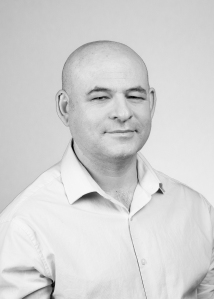A career as an editor is often a solo adventure, especially if you’re a freelancer. So we thought one way to better connect with fellow editors was to ask them the W5: who, what, where, when, and why. Read on for some thought-provoking, enlightening tidbits from those of us who choose to work with words to earn our keep.
Interview conducted by Jennifer D. Foster

Pietro, please tell us a little about yourself, the kind of work you do, and how long you’ve been an editor.
I have been a Torontonian all my life, and my first paid work as a copy editor and proofreader was in 2003. Magazine publishing and advertising are the two industries in which I’ve worked the most.
As the owner of Pietro Cammalleri’s Editorial Services, I currently work anywhere from 20 to 40 hours a week, in the healthcare division of an ad agency whose clients are mostly large drug companies. The material I proofread ranges from print ads for medical journals to microsites for prescription medications. A large chunk of the “proofreading” I undertake is actually copy editing because the copy hasn’t been previously edited; surprisingly, in this role I mark up on hard copy much of the time. I also do quality assurance for iPad apps that have been tailored to client needs by checking the screens against hard-copy laser prints.
When I’m not at the ad agency, I try to pick up the odd freelance editing or proofreading work. Recently, for example, I finished copy editing a collection of a friend’s short stories; the manuscript has already been submitted to two publishers.
Who: If you could edit one famous author, living or dead, who would it be?
Ayn Rand so that I could edit Atlas Shrugged. However, I wouldn’t change any of Rand’s copy. No, I would spend all my time querying her philosophy. As well, on every second page of the 1,000-page-plus manuscript, I would keep querying, Who is John Galt?
What: What is your favourite punctuation mark and/or favourite word?
My favourite punctuation mark is the em dash. I even use it in my text messages—and frequently, at that.
Where: If you could work anywhere in the world as an editor, where would that be?
I’ve never given much thought to moving from Toronto. If I did move, the reason would most likely be a career change rather than a change of scenery.
When: Was there ever a time in your life when you seriously questioned your career choice?
For the last four years I’ve considered switching to either a job in law enforcement or a job as an intelligence analyst in a law enforcement agency. A serious hobby of mine is to research Canadian organized-crime groups.
Why: Why did you choose to become an editor? Or, should we ask: Why did editing choose you?
Editing chose me.
When I was receiving some career counselling in 2002, part of the brainstorming exercises involved listing interests and identifying jobs with which those interests intersected. One interest was—and still very much is—weight training; another was copy editing, as three years earlier I had enjoyed the experience of proofreading on a volunteer basis my karate-do instructor’s self-defence book, which was published later that year.
In December 2002, I approached the editor-in-chief of MuscleMag International, a top-selling bodybuilding magazine at the time, by talking to him in person at his company’s semi-annual warehouse sale (the company had not only a publication arm but also a retail business line). We talked about his occasional need for editorial freelancers. I promised I’d write him. I mailed him a three-page letter, not even enclosing a resumé. A month later, I got a voice mail from one of his staffers about going into their offices. One month after that, an interview and copy-editing test were finally arranged for the same day. A few days after my interview, I was hired as a copy editor.
And, of course, we just had to ask the inevitable how: How would you sum up your motto?
Working as a copy editor and proofreader in advertising is quite humbling because your colleagues tend not to change copy and art. At work, many of my markups are stetted, many of my suggestions go unread, and many of my queries remain unanswered. Nevertheless, many times I have found glaring and potentially embarrassing errors. On other occasions, I have pointed out violations of copyright, trademark, and other intellectual property were the content to be published as is. My motto, then, is this: Every day, in untold ways, an editor saves people their jobs and companies their clients.
Jennifer D. Foster is a Toronto-based freelance editor and writer, specializing in book and custom publishing, magazines, and marketing and communications.
This article was copy edited by Ambrose Li.
